以上复习:
package banking1;
public class Account {
private double balance;
public Account(double balance) {
this.balance = balance;
}
public double getBalance() {
return balance;
}
// 存钱
public void deposit(double amt) {
balance += amt;
}
// 取钱
public void withdraw(double amt) {
if (balance >= amt) {
balance -= amt;
} else {
System.out.println("余额不足");
}
}
}
/*
* This class creates the program to test the banking classes.
* It creates a new Bank, sets the Customer (with an initial balance),
* and performs a series of transactions with the Account object.
*/
package testbanking;
import banking1.Account;
public class TestBanking {
public static void main(String[] args) {
Account account;
// Create an account that can has a 500.00 balance.
account = new Account(500.00);
System.out.println("Creating an account with a 500.00 balance.");
// code
account.withdraw(150.00);
System.out.println("Withdraw 150.00");
// code
account.deposit(22.50);
System.out.println("Deposit 22.50");
// code
account.withdraw(47.62);
System.out.println("Withdraw 47.62");
// code
// Print out the final account balance
System.out.println("The account has a balance of "
+ account.getBalance());
}
}
package banking2;
public class Account {
private double balance;
public Account(double balance) {
this.balance = balance;
}
public double getBalance() {
return balance;
}
// 存钱
public void deposit(double amt) {
balance += amt;
}
// 取钱
public void withdraw(double amt) {
if (balance >= amt) {
balance -= amt;
} else {
System.out.println("余额不足");
}
}
}
package testbanking;
/*
* This class creates the program to test the banking classes.
* It creates a new Bank, sets the Customer (with an initial balance),
* and performs a series of transactions with the Account object.
*/
import banking2.Account;
import banking2.Customer;
public class TestBanking2 {
public static void main(String[] args) {
Customer customer;
Account account;
// Create an account that can has a 500.00 balance.
account = new Account(500.00);
System.out.println("Creating the customer Jane Smith.");
// code
customer = new Customer("Jane", "Smith");
System.out.println("Creating her account with a 500.00 balance.");
// code
customer.setAccount(account);
System.out.println("Withdraw 150.00");
// code
customer.getAccount().withdraw(150.00);
System.out.println("Deposit 22.50");
// code
customer.getAccount().deposit(22.50);
System.out.println("Withdraw 47.62");
// code
customer.getAccount().withdraw(47.62);
// Print out the final account balance
System.out.println("Customer [" + customer.getLastName() + ", "
+ customer.getFirstName() + "] has a balance of "
+ account.getBalance());
}
}
package banking3;
public class Account {
private double balance;
public Account(double balance) {
this.balance = balance;
}
public double getBalance() {
return balance;
}
// 存钱
public boolean deposit(double amt) {
balance += amt;
return true;
}
// 取钱
public boolean withdraw(double amt) {
if (balance >= amt) {
balance -= amt;
return true;
} else {
System.out.println("余额不足");
}
return false;
}
}
package banking4;
public class Bank {
private Customer[] customers; // 用于存放客户
private int numberOfCustomers;// 记录客户的个数
public Bank() {
customers = new Customer[5];
}
// 添加一个Customer到数组中
public void addCustomer(String f, String l) {
customers[numberOfCustomers] = new Customer(f, l);
numberOfCustomers++;
}
// 获取Customer的个数
public int getNumOfCustomers() {
return numberOfCustomers;
}
// 返回指定索引位置的Customer
public Customer getCustomer(int index) {
return customers[index];
}
}
package testbanking;
/*
* This class creates the program to test the banking classes.
* It creates a new Bank, sets the Customer (with an initial balance),
* and performs a series of transactions with the Account object.
*/
import banking4.Bank;
import banking4.Customer;
public class TestBanking4 {
public static void main(String[] args) {
Bank bank = new Bank();
// Add Customer Jane, Simms
// code
bank.addCustomer("Jane", "Simms");
// Add Customer Owen, Bryant
// code
bank.addCustomer("Owen", "Bryant");
// Add Customer Tim, Soley
// code
bank.addCustomer("Tim", "Soley");
// Add Customer Maria, Soley
// code
bank.addCustomer("Maria", "Soley");
for (int i = 0; i < bank.getNumOfCustomers(); i++) {
Customer customer = bank.getCustomer(i);
System.out.println("Customer [" + (i + 1) + "] is "
+ customer.getLastName() + ", " + customer.getFirstName());
}
}
}








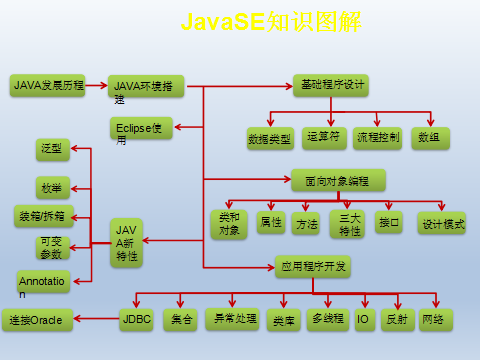
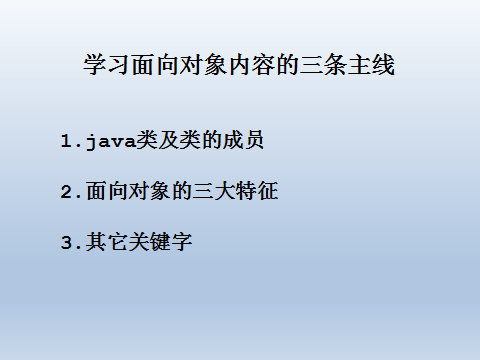
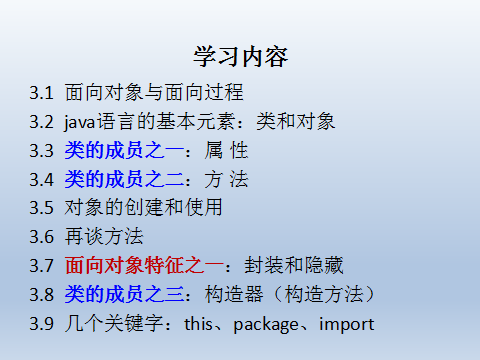
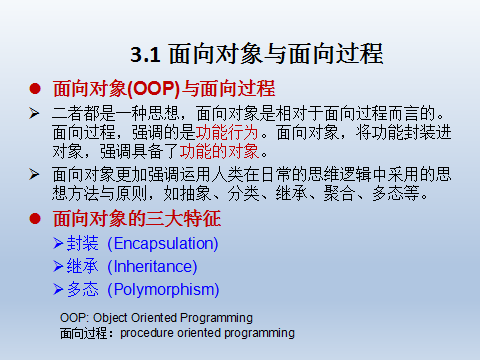
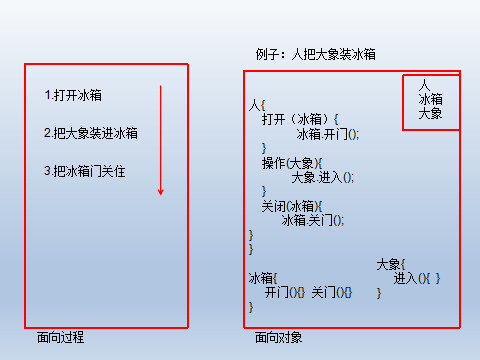
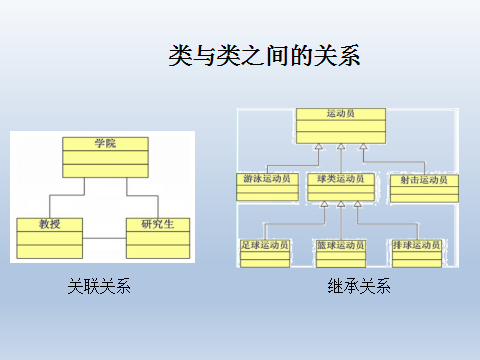
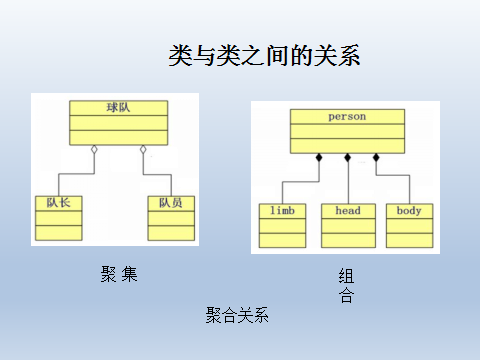
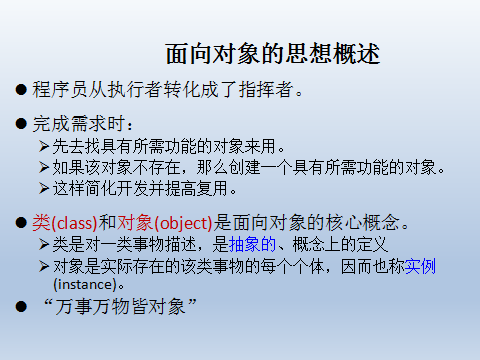
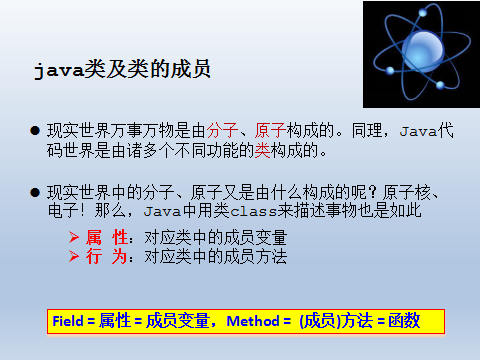
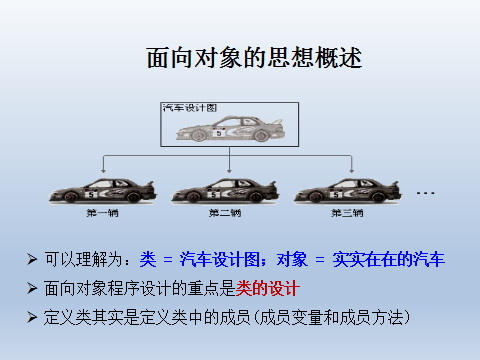
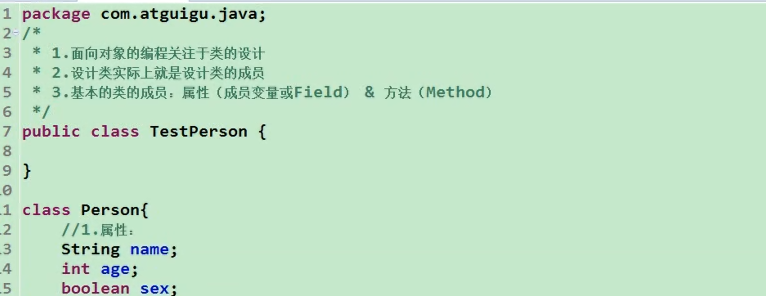
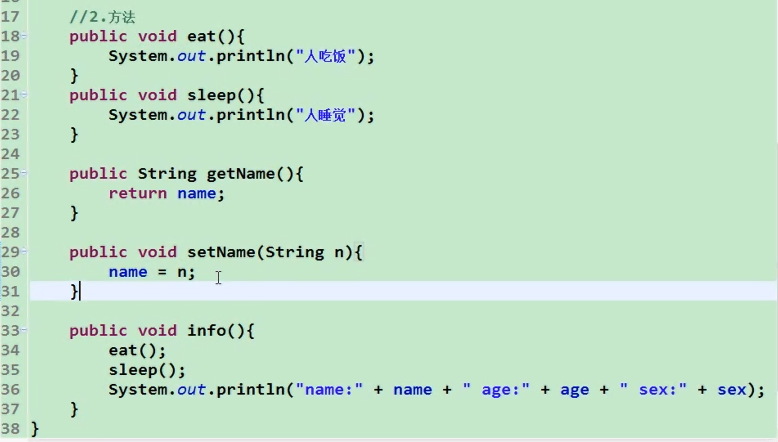
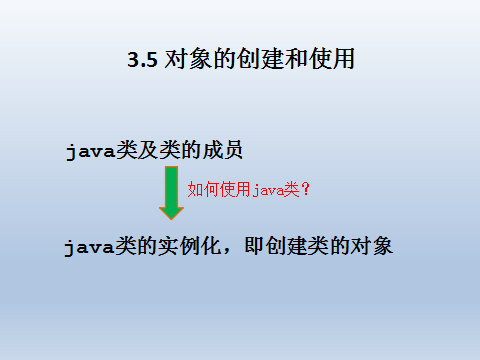
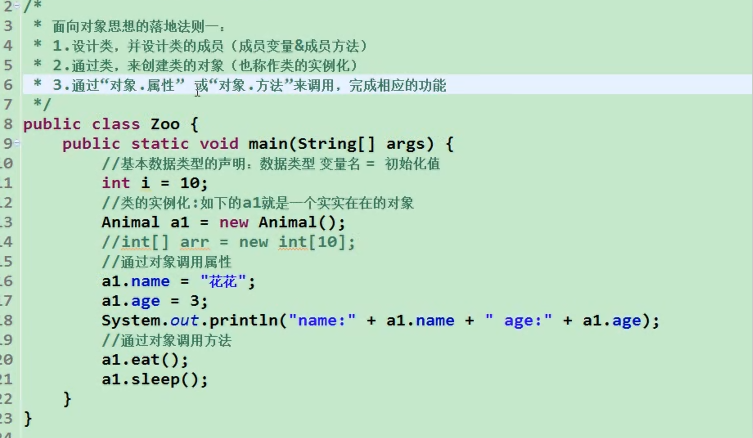
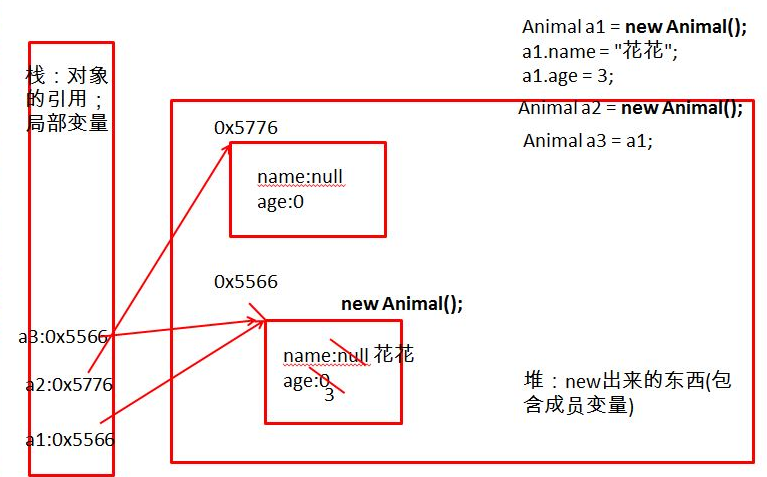
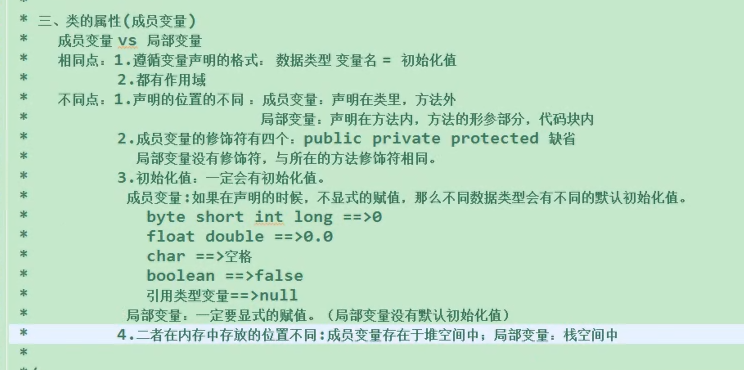
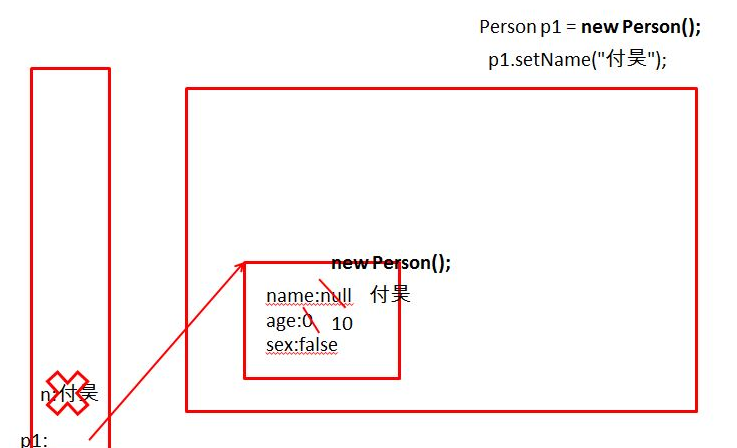
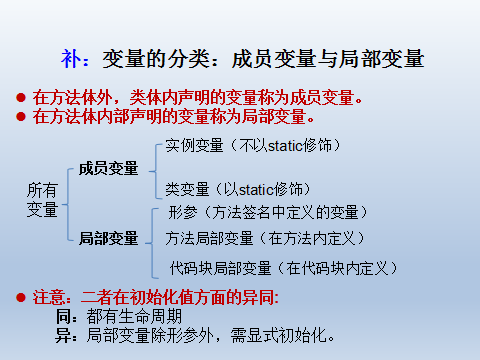

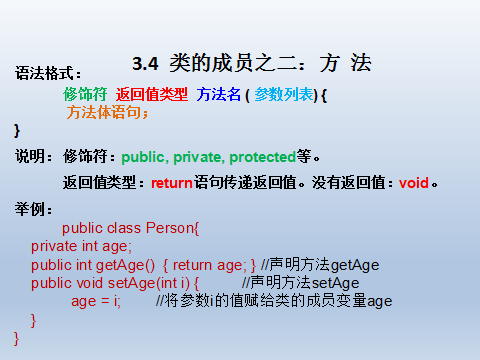
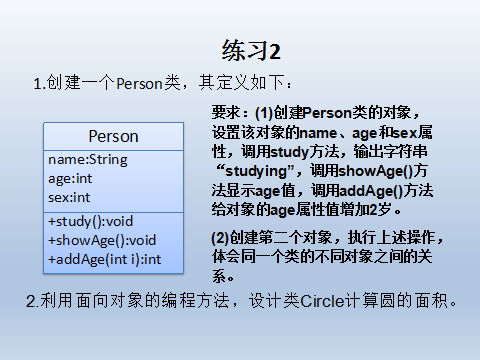
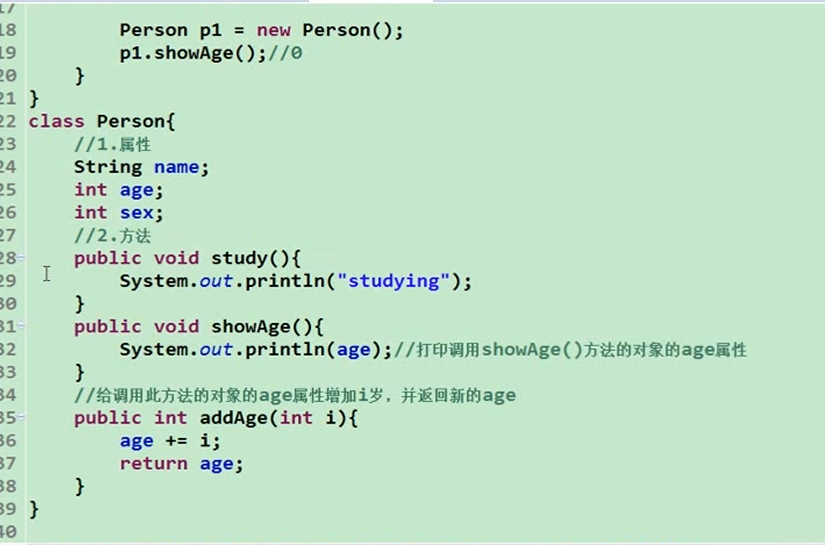
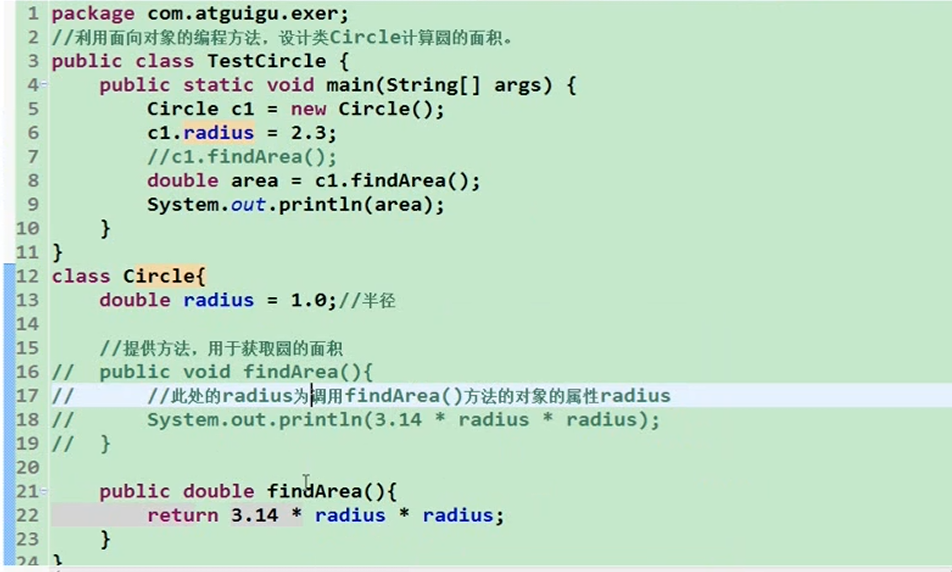
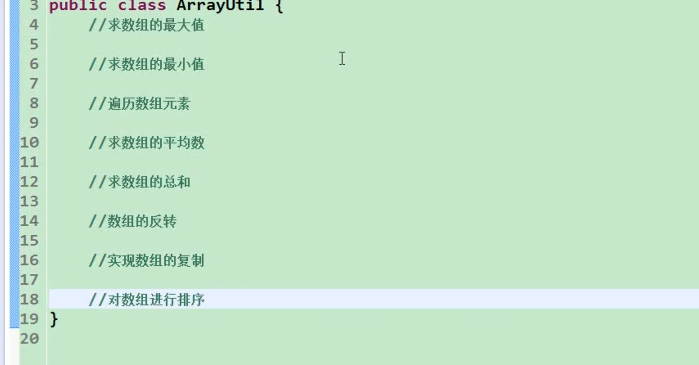

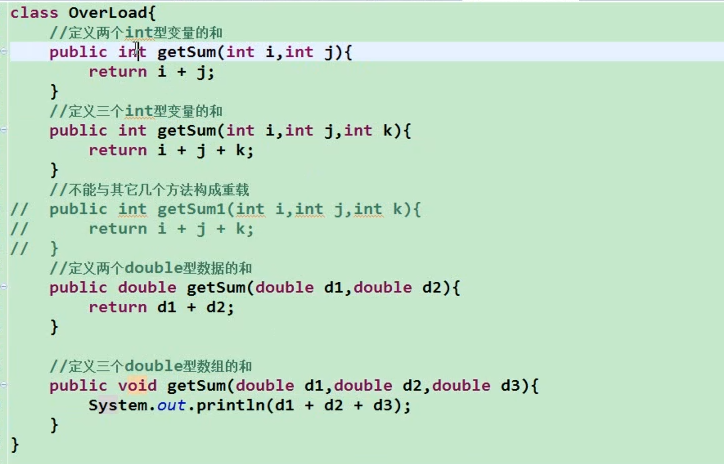
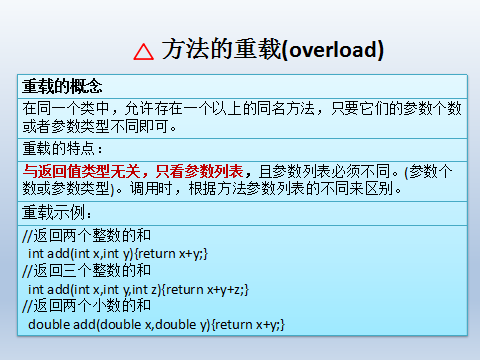
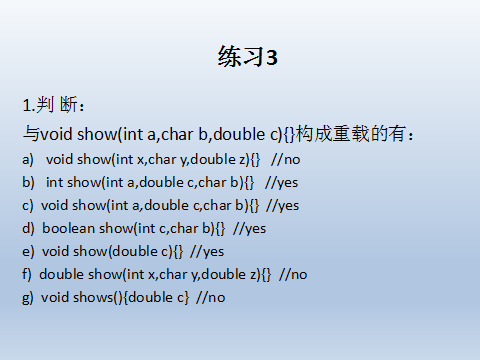
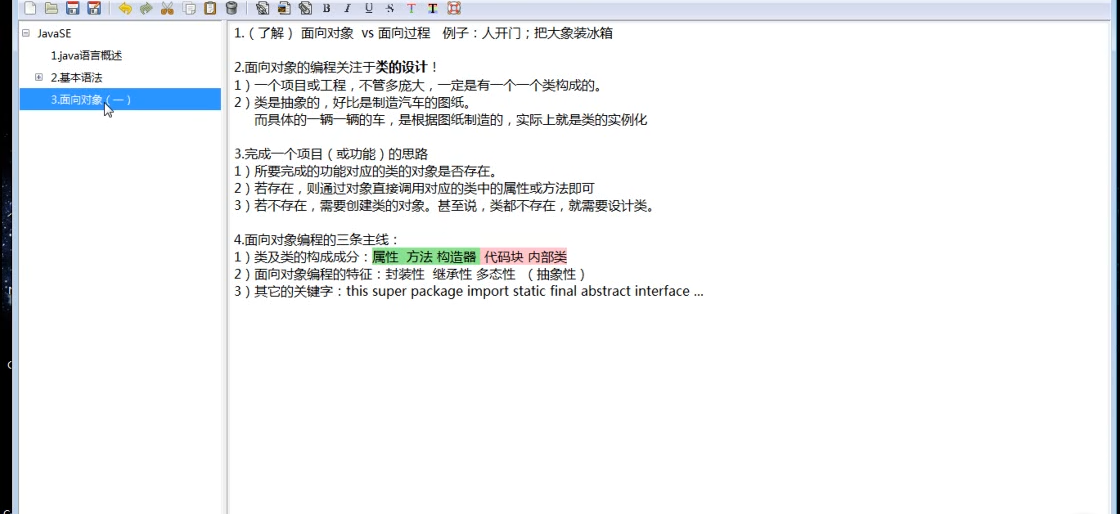
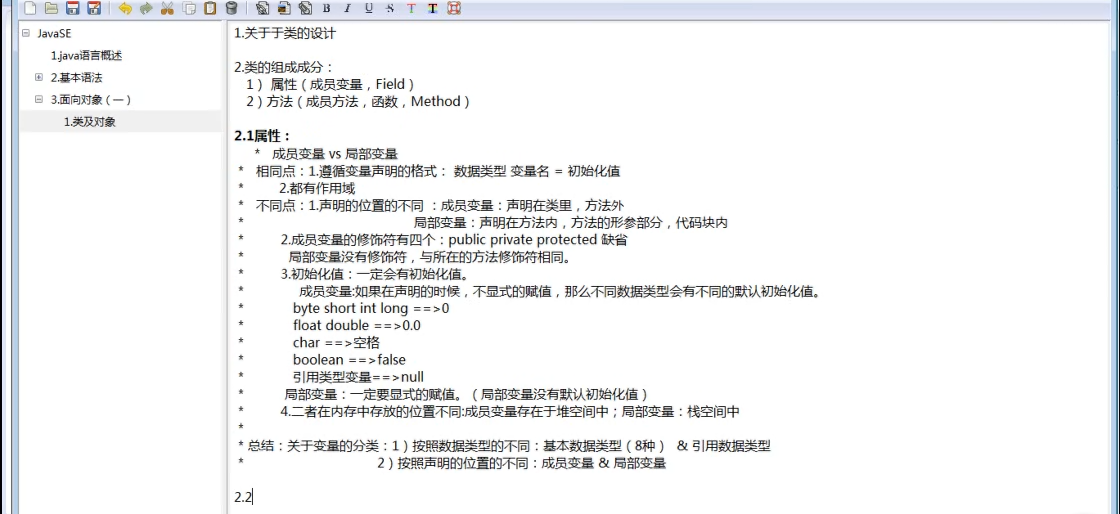
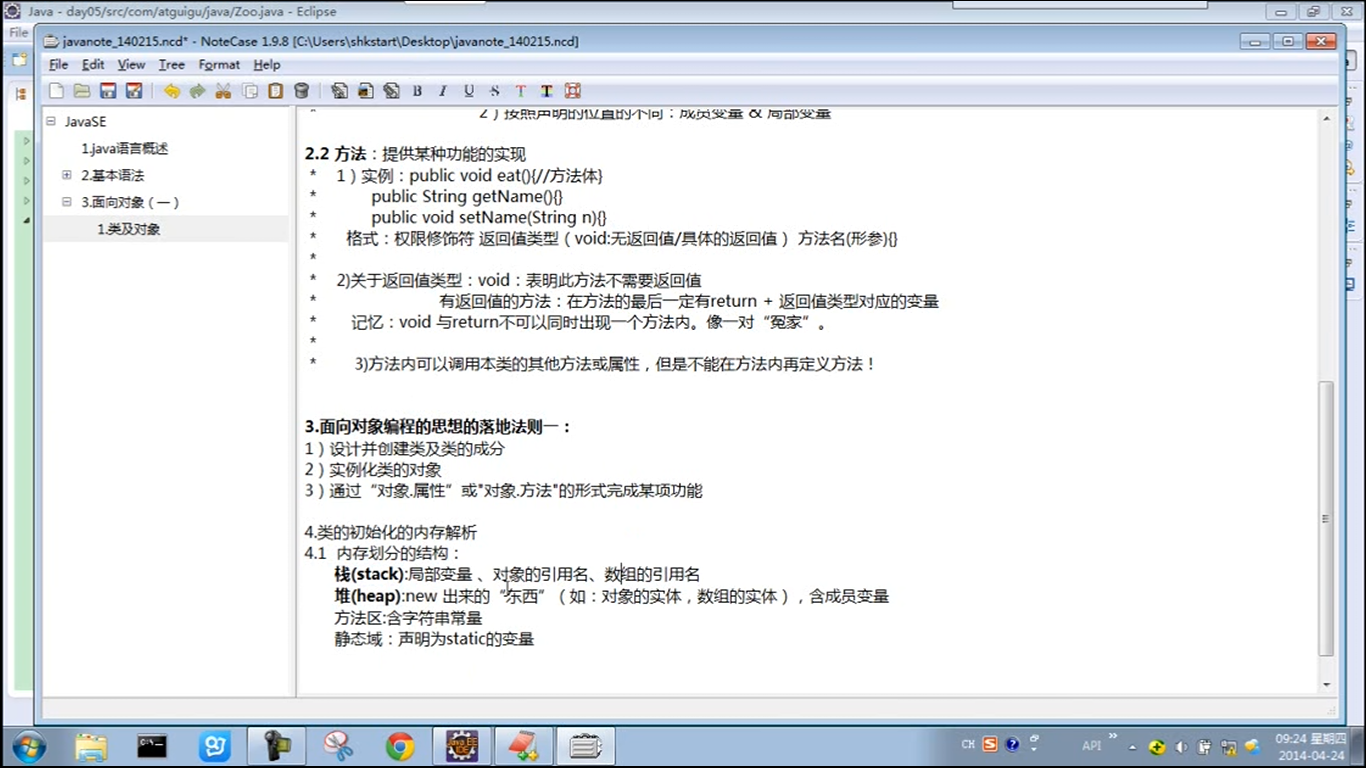
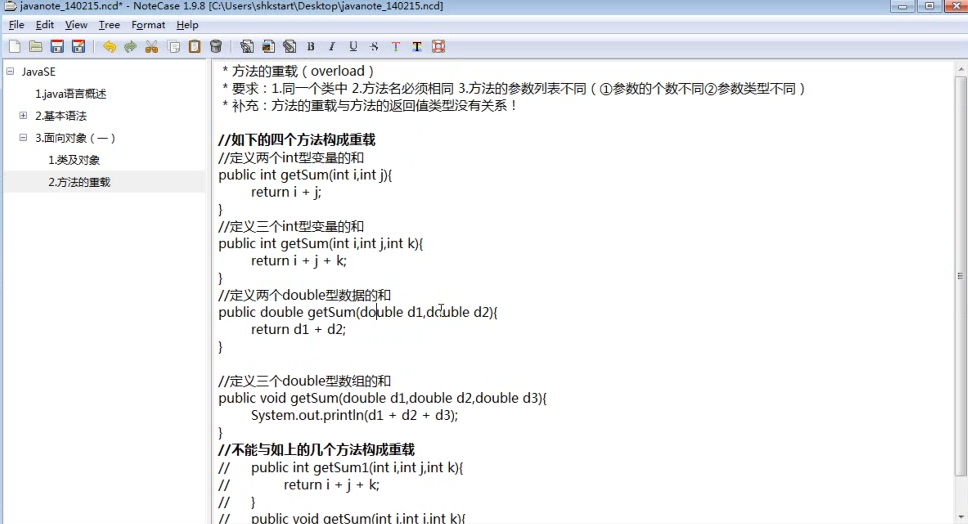
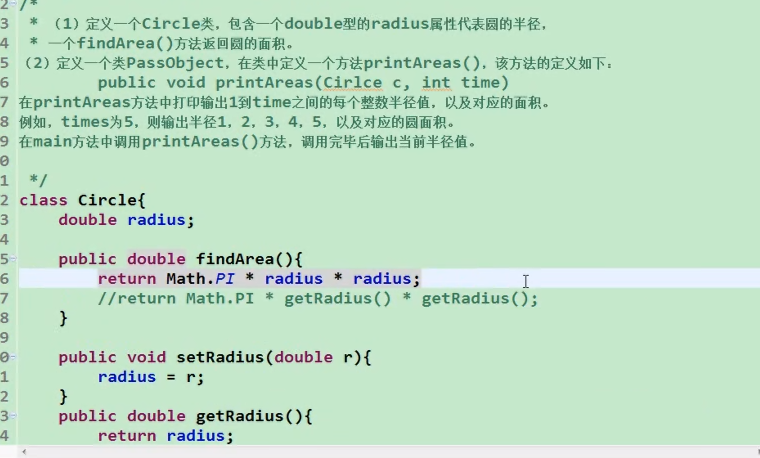
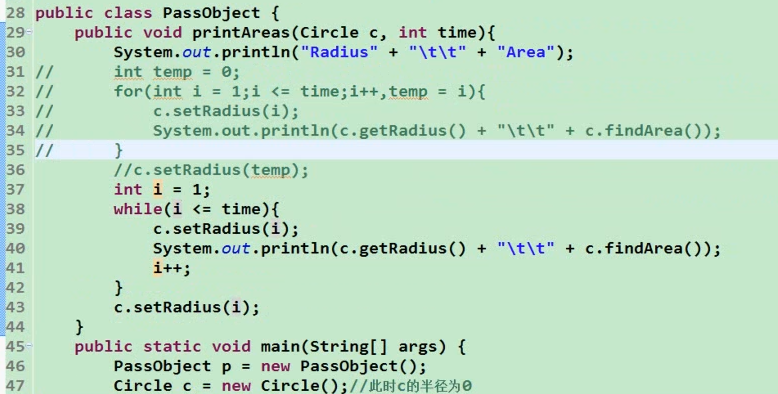


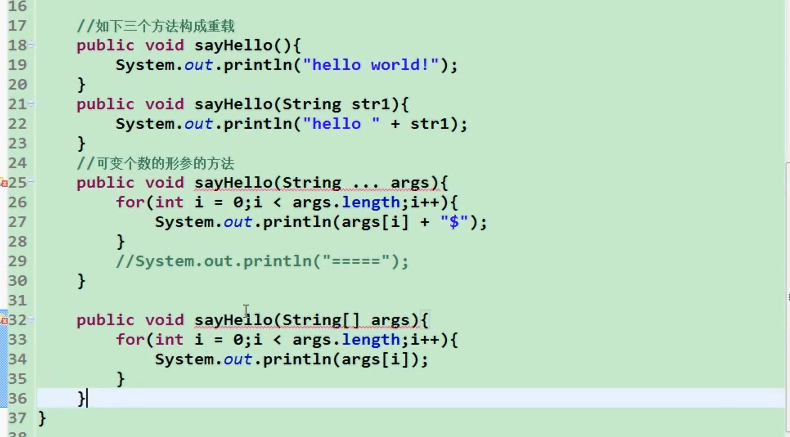
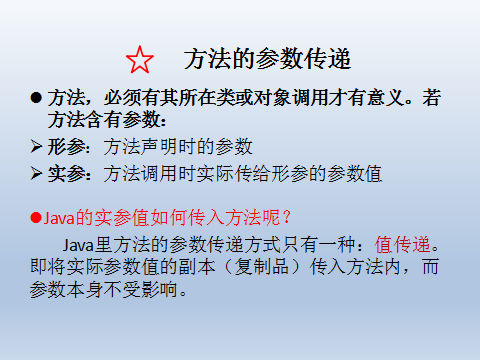
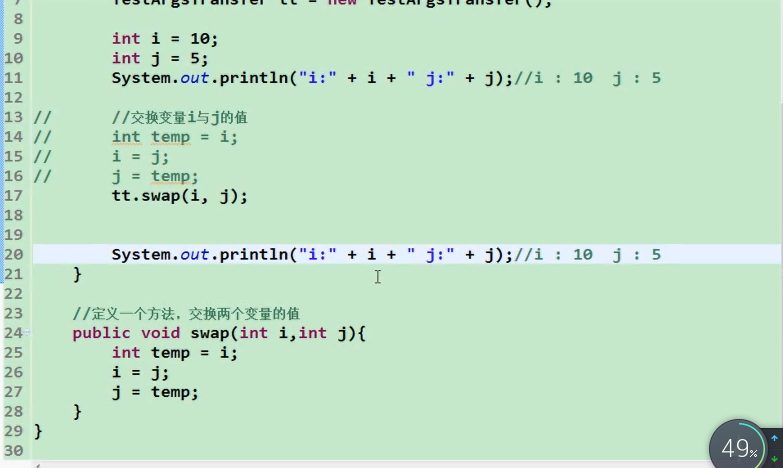
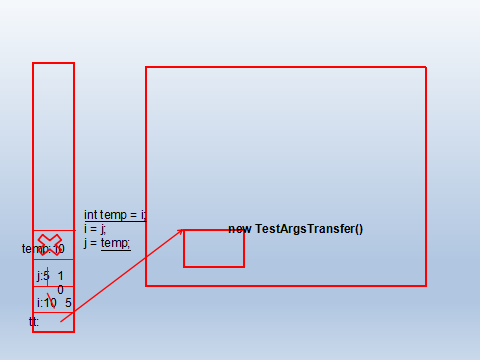
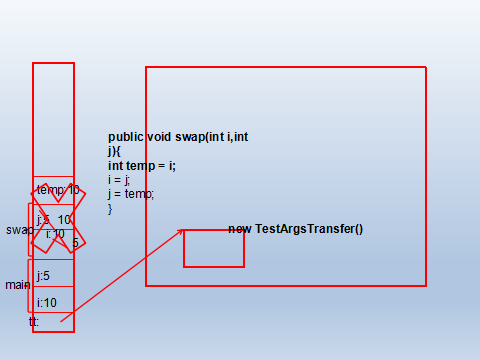
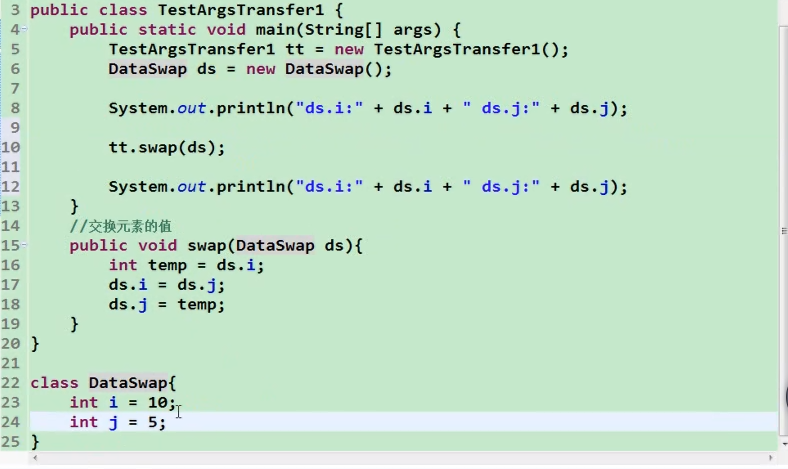
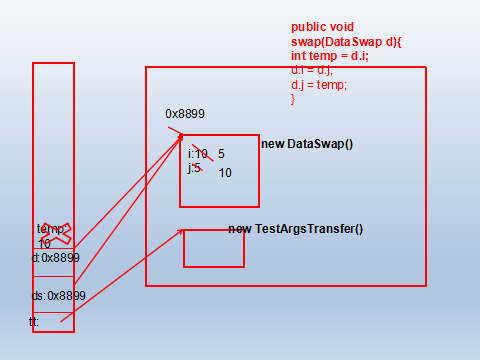




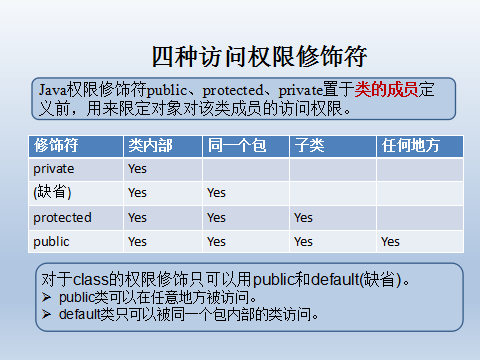
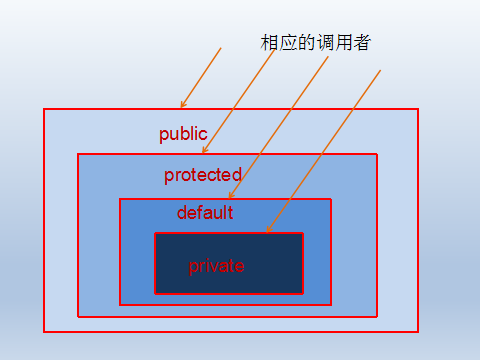
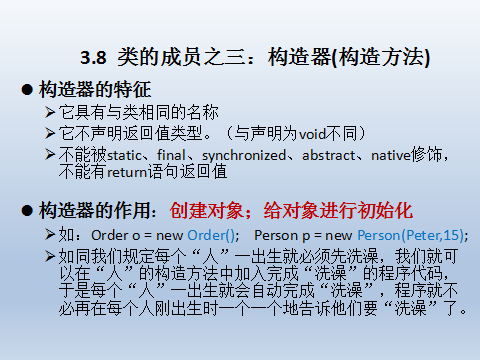
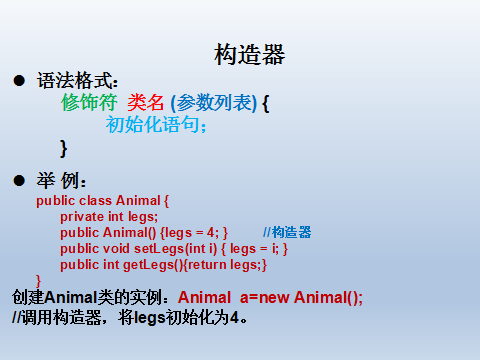
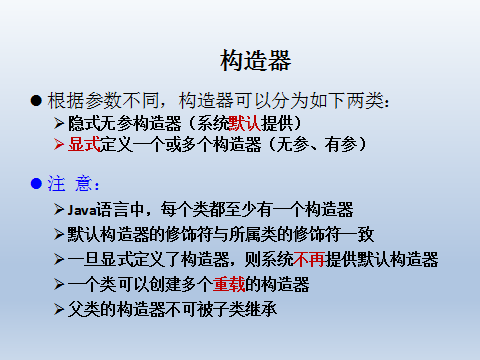
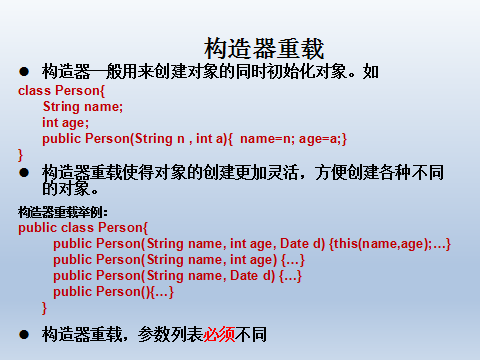
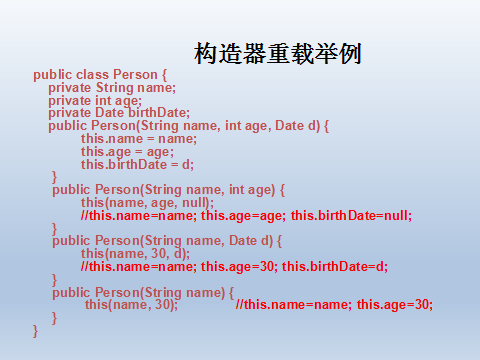


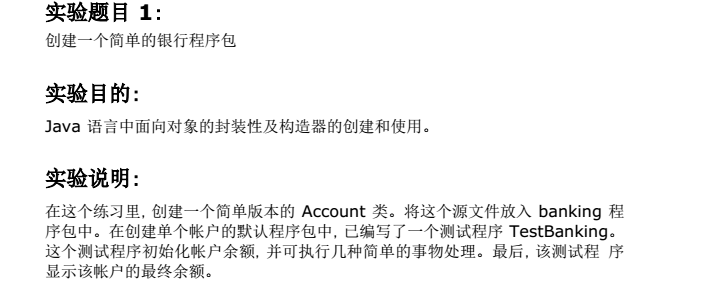
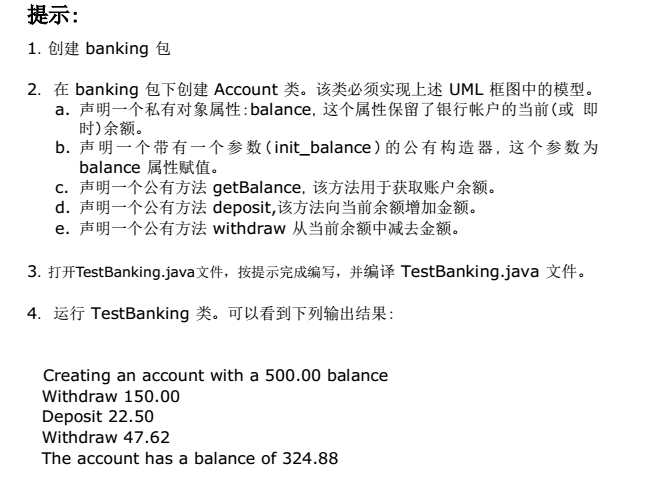
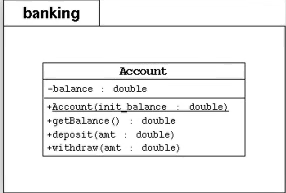
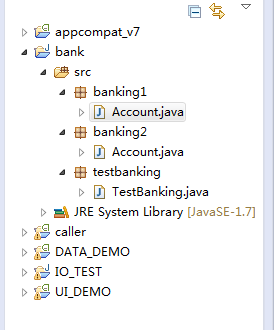

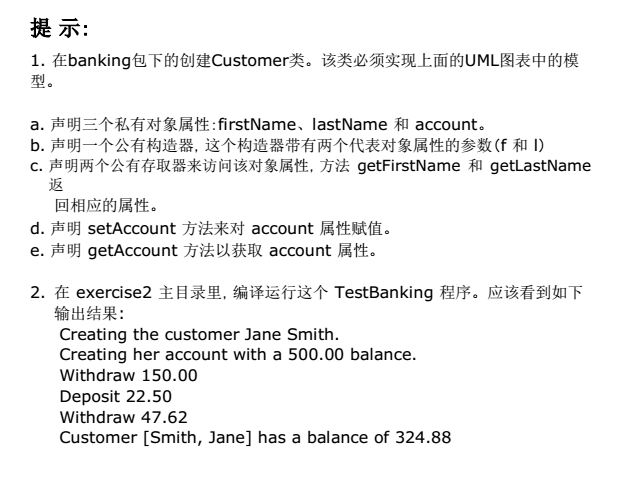

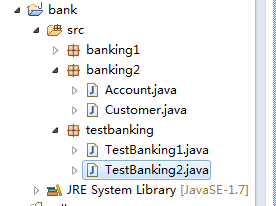

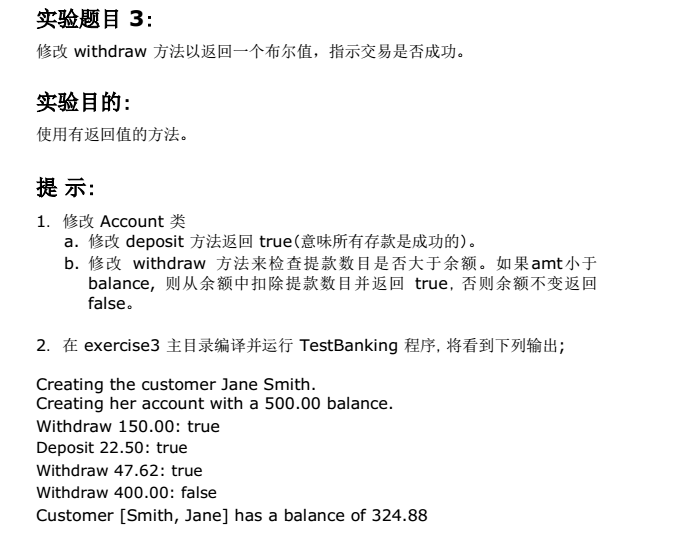

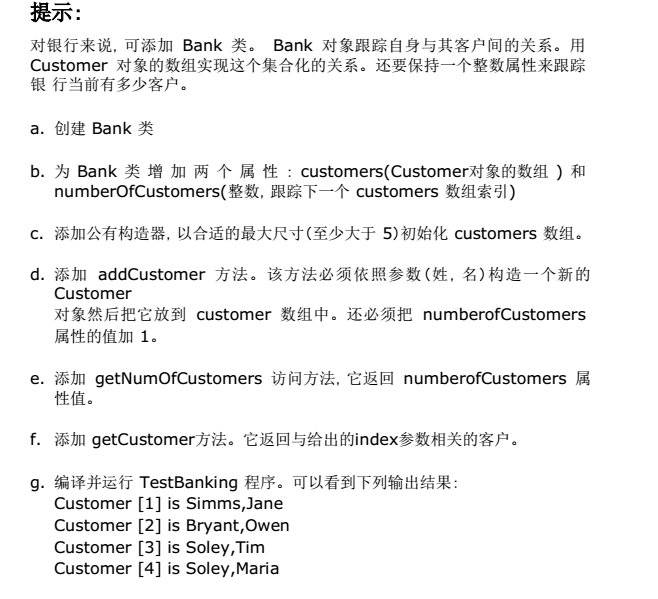

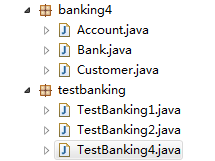

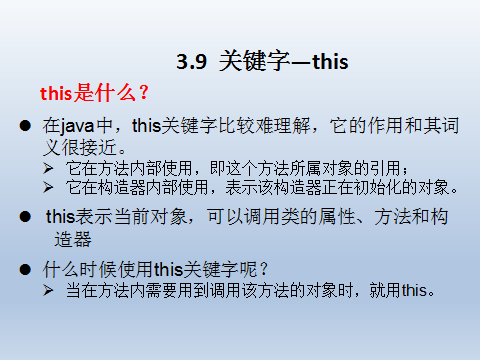
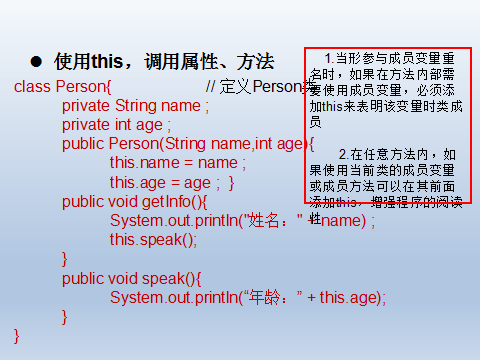
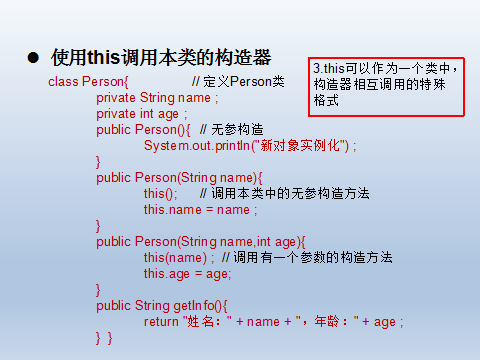
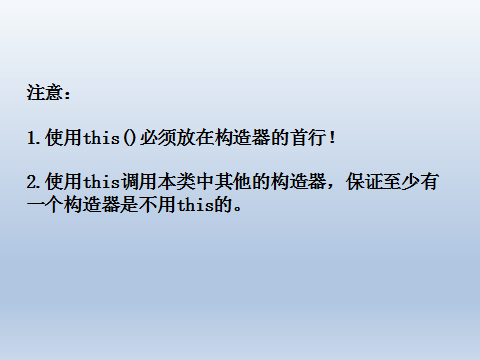
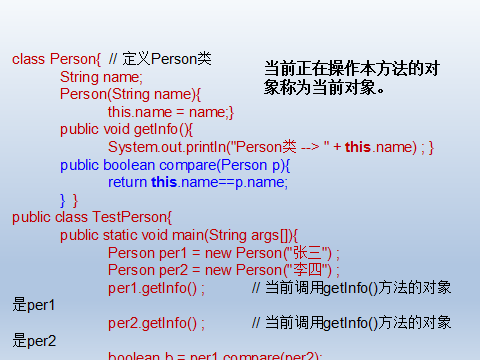

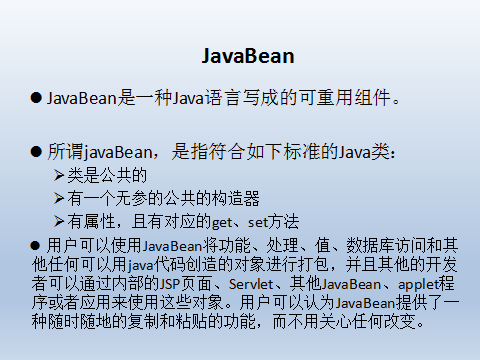
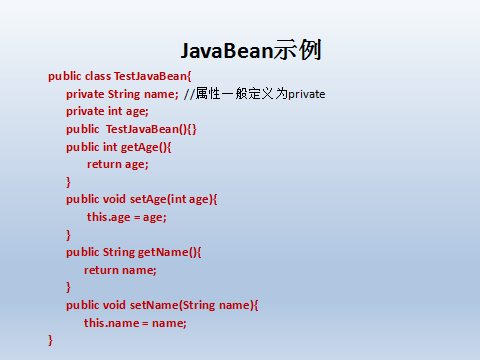

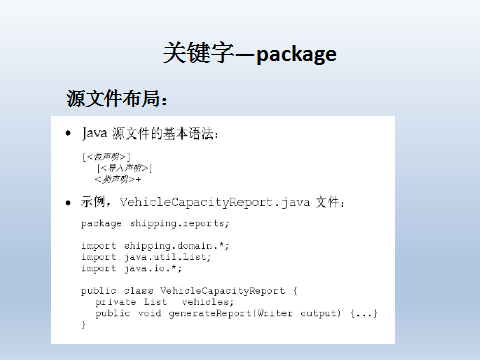
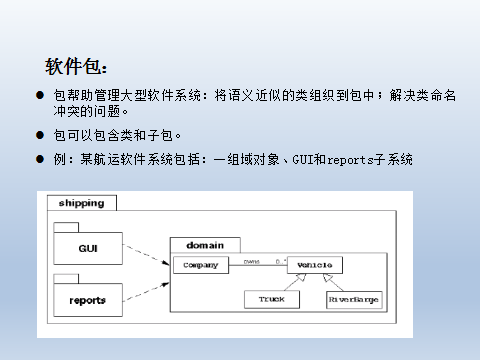
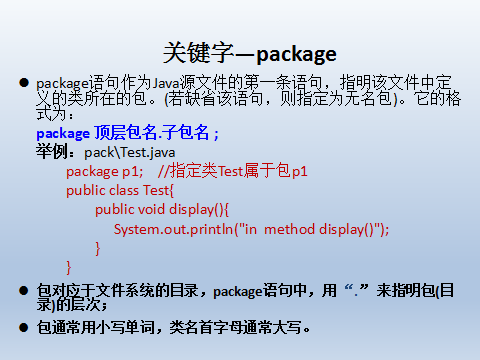
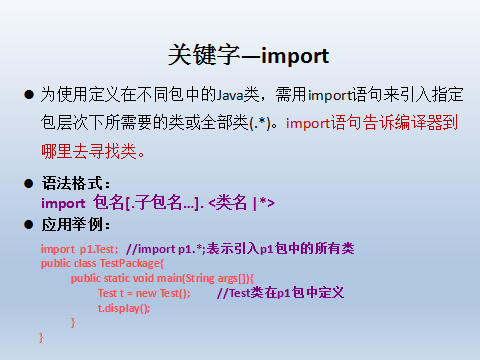
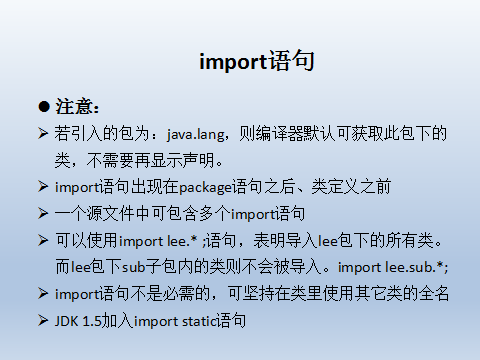
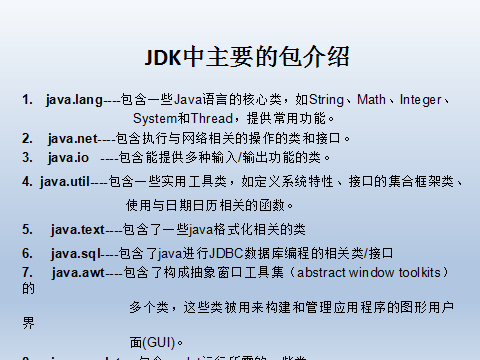














 1214
1214

 被折叠的 条评论
为什么被折叠?
被折叠的 条评论
为什么被折叠?








